The PHP interpreter is converting as a first step the souce code into bytecode. In a second step, the bytecode is passed to a Zend Engie that creates the machine code for the relevant CPU. If opcache is activated, the bytecode is stored in cache, so that the first step can be skipped in subsequent calls.
 (Image taken from PHP Master Write Cutting-Edge Code)
(Image taken from PHP Master Write Cutting-Edge Code)
However, I do not understand why opcache is caching bytecode instead of maschine code? Would it not be a big benefit if one could skip the first and second step? Also, since a website is in many cases only executed on one single server, I don't see that PHP is using the benefit of bytecode, which is (if I understood correctly) that the code can be used on different hardware.
About my research: Most questions that I found were about if PHP is interpreter or compiler language. The closest relevant question that I found was: Can you "compile" PHP code and upload a binary-ish file, which will just be run by the byte code interpreter? - but here it was asked if it is possible to parse the bytecode beforehand and upload it (instead of caching). But my question is if the machine code can be cached instead of the bytecode.